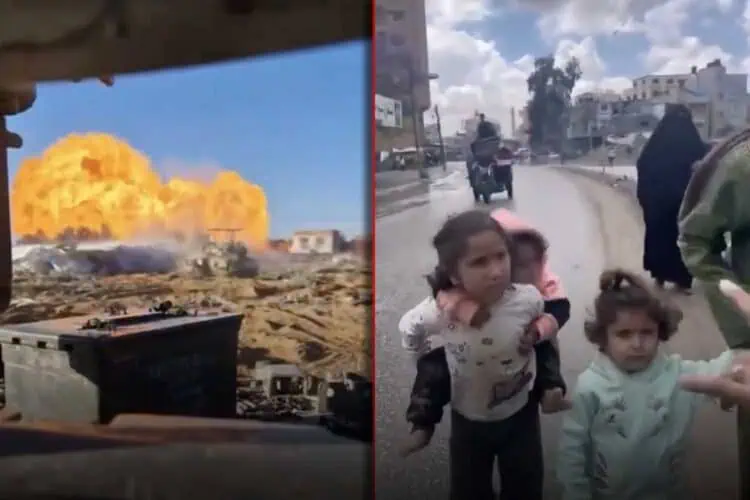Israel has continued its military offensive in the southern Gaza city of Rafah, prompting urgent international responses and humanitarian concerns.
Rafah invasion: Here are the latest updates
PLEASE NOTE: The third-party content embedded in this article contains images of a graphic nature that may be harmful to sensitive audiences. Viewers’ discretion is strongly advised. Swisher Post, its parent company, partners and affiliates do not condone violence and/or bullying and, thus, shall not be held liable for any consequence that arises from the journalistic duties performed in sharing this content.
As of Thursday, May 9, 2024, the situation in Rafah remains critical.
According to reports, Israeli forces have taken operational control of Gaza’s crossing into Egypt, effectively sealing it off.
This move follows intense military activity in the region, including airstrikes and a ground invasion aimed at dismantling Hamas strongholds.
According to local health officials, recent airstrikes have tragically resulted in the deaths of at least 25 people, with many others injured.
The escalating violence has led to widespread displacement, with the United Nations reporting that over three-quarters of the Gaza Strip is now under evacuation orders.
The US’s position on the Rafah bombardments
The United States has expressed significant concerns regarding the ongoing military actions in Rafah.
President Joe Biden has explicitly warned that the US will halt the supply of munitions to Israel if it continues its offensive in Rafah.
This stance represents a potential turning point in US-Israel relations, showcased by the US’s recent decision to pause a shipment of over 3,000 bombs intended for Israel.
“Civilians have been killed in Gaza as a consequence of those bombs and other ways in which they go after population centers,” Biden said.”
Here’s how South Africa reacted
South Africa highlighted severe violations of international law in its condemnation of Israel’s actions in Rafah.
In a statement, the Department of International Relations (DIRCO) stressed that the military offensive could amount to forced displacement, which is unlawful under international law.
“Rafah has become a temporary shelter for Palestinians who have been forced to relocate there, with already limited access to food, medical care and other services after months of bombardment by Israel of their homes in the rest of the Gaza Strip,” the department wrote.
It has called for immediate ceasefire negotiations and stressed the need for unimpeded humanitarian access to Gaza.
“The continued illegal military action in Gaza and the announcement of its action in Rafah are indications that the Israeli Government is not only ignoring the [International Criminal Court’s] order, but that it also intends to increase its genocidal actions in Gaza.
Why Israel wants to forge ahead with Rafah invasion
Israel’s decision to proceed with the invasion of Rafah, despite international warnings, stems from its strategic objective to neutralise Hamas, which it views as a significant security threat.
The Israeli government, led by Prime Minister Benjamin Netanyahu, has stated that this military campaign is essential for achieving “total victory” over Hamas and ensuring the long-term security of Israeli territories.
This offensive is seen as a response to continuous hostilities, including rocket attacks from Hamas towards Israeli territories.






